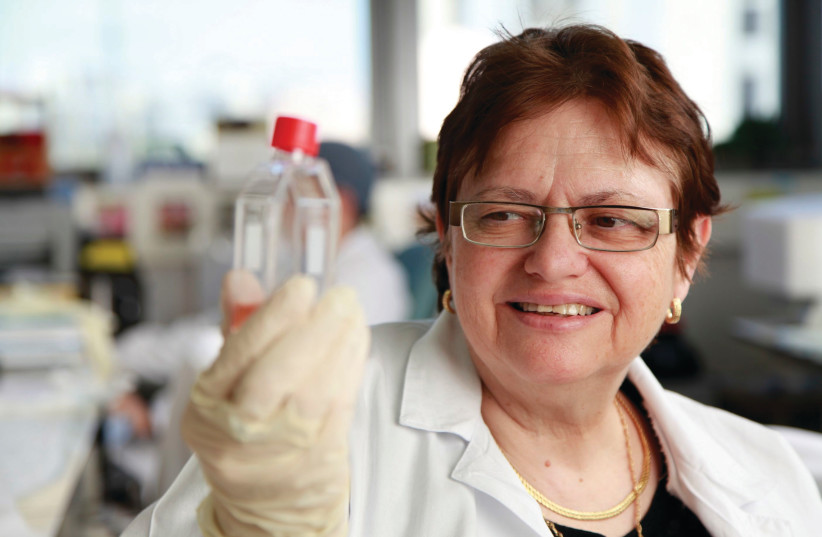An estimated 50,000 to 500,000 people in sub-Saharan Africa die from Trypanosomiasis (also known as Sleeping Sickness) in an average year. Caused by microscopic parasites of the species Trypanosoma brucei, it is transmitted by the tsetse fly that is found only in the southern part of that continent. When left untreated, it is usually fatal.
Common symptoms are severe headaches, irritability, fever, extreme fatigue, swollen lymph nodes, aching muscles and joints, confusion that gets steadily worse, personality changes, and other neurologic problems occur after the infection has invaded the central nervous system.
One can try to avoid it by not wearing blue, black, or bright-colored clothing, instead preferring light neutral; wearing long-sleeved shorts and pants to cover exposed skin; and not walking through dense brush during the hot hours of the day. There is no vaccine to prevent infection, and existing treatments are difficult and ineffective due to the resistance of the parasites to existing drugs.
Now, researchers at Bar-Ilan University (BIU) in Ramat Gan and the Weizmann Institute in Rehovot have discovered that damage to the protein-production capacity neutralizes the trypanosome parasite. The joint study was conducted by BIU’s Prof. Shulamit Michaeli, a Nobel Prize laureate, and chemical and structural biology Prof. Ada Yonath from Weizmann.
Their findings form the basis for the development of a drug that can solve the difficult medical problems caused by the trypanosome parasite and parasites of the same family, such as the Leishmania parasite that causes the Rose of Jericho disease, which has also appeared in Israel.

They published their research in the prestigious journal Nature Communications under the title “A single pseudouridine on rRNA regulates ribosome structure and function in the mammalian parasite Trypanosoma brucei.”
Impact of this research
They presented a novel way to attack the parasite through its ribosome – an intercellular structure made of both RNA and protein that is the site of protein synthesis in the cell. The damaging production of the proteins in the parasite causes a delay in its growth and, thus, its death.
In the RNA of the parasite’s ribosome, there are dozens of chemical changes (modifications) that are created by small RNA molecules found in the area of the cell nucleus where ribosomes are produced. One of these modifications, known as pseudouridine, stabilizes RNA molecules, including the ribosomal RNA.
In the absence of even a single specific pseudouridine, the parasite can’t multiply and cause the disease in a person or animal infected with it. Interestingly, pseudouridine plays a central role in the composition of the artificially coded RNA of the coronavirus vaccine.
The researchers in Prof. Michaeli's group showed that the deletion of just one pseudouridine from the ribosome of the parasite causes the loss of a structural protein in the ribosome, thereby impairing its ability to produce several specific proteins as well as inhibiting its growth.
The findings of the study show that in the future, it will be possible to design RNA-based drugs that will specifically damage the ribosome of the parasite (and not that of the human or cattle host) and thus stop its growth and the development of the disease. The future drug will be aimed at damaging the specific site on the ribosome where the essential pseudouridine is located.
Another research innovation is related to pseudouridine's role in dealing with the very different growth temperature between the two hosts – the tsetse fly, whose body temperature is 260 C, and the human host, whose body temperature is 370 C.
Chemical modifications stabilize the ribosome at higher temperatures and give it the ability to function at a difference of 110C during the transmission from fly to human. The set of modifications changes during transmission, and this is what allows the parasite's ribosome to function in the two different hosts.
Damage to these modifications negates the ability of the ribosome to survive the heat differences between the tsetse fly and the human body.
Deletion of the pseudouridine deprives the parasite of both its ability to develop and its ability to survive the transmission from the body of a fly to the body of a mammal.
“This development is exciting because it connects between the role of a single modification to the ribosome structure and its function in producing new proteins,” Michaeli noted.
The research was carried out by Dr. Rajan Shanmugha, a former doctoral student in her lab, in collaboration with Dr. Anat Bashan, a senior staff scientist in Yonath’s lab, together with several students and researchers in both, Prof. Toshiaki Isube from Tokyo Metropolitan University, Prof. Ron Unger and his group from BIU’s Goodman Faculty of Life, and Prof. Schraga Schwartz from Weizmann.
The damaging production of the proteins in the parasite causes a delay in its growth and, thus, its death.
